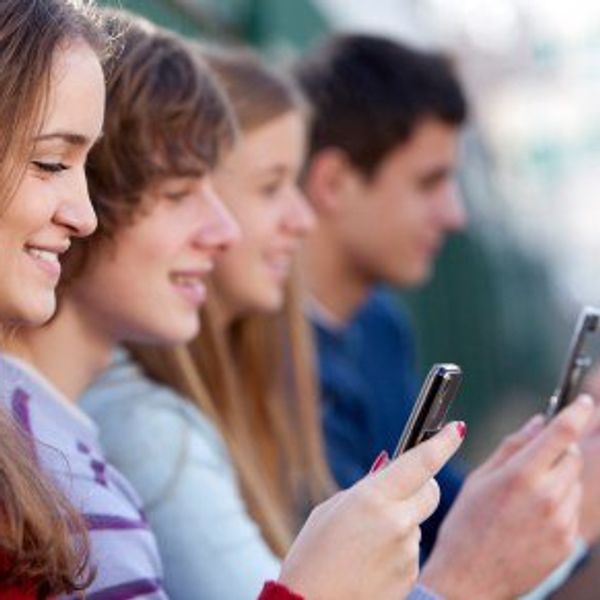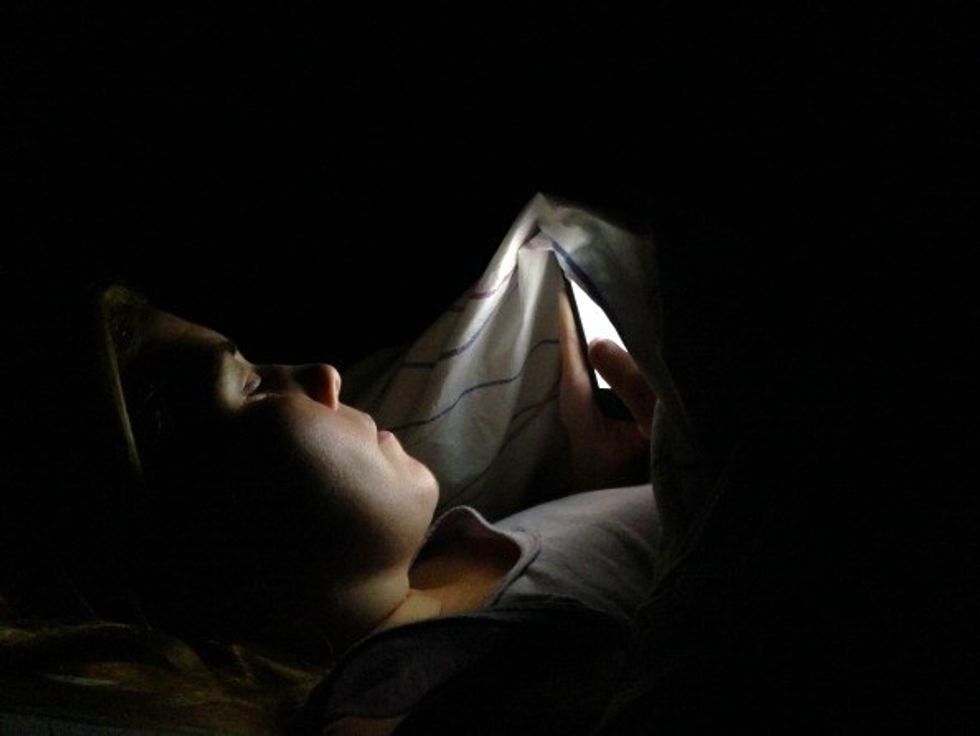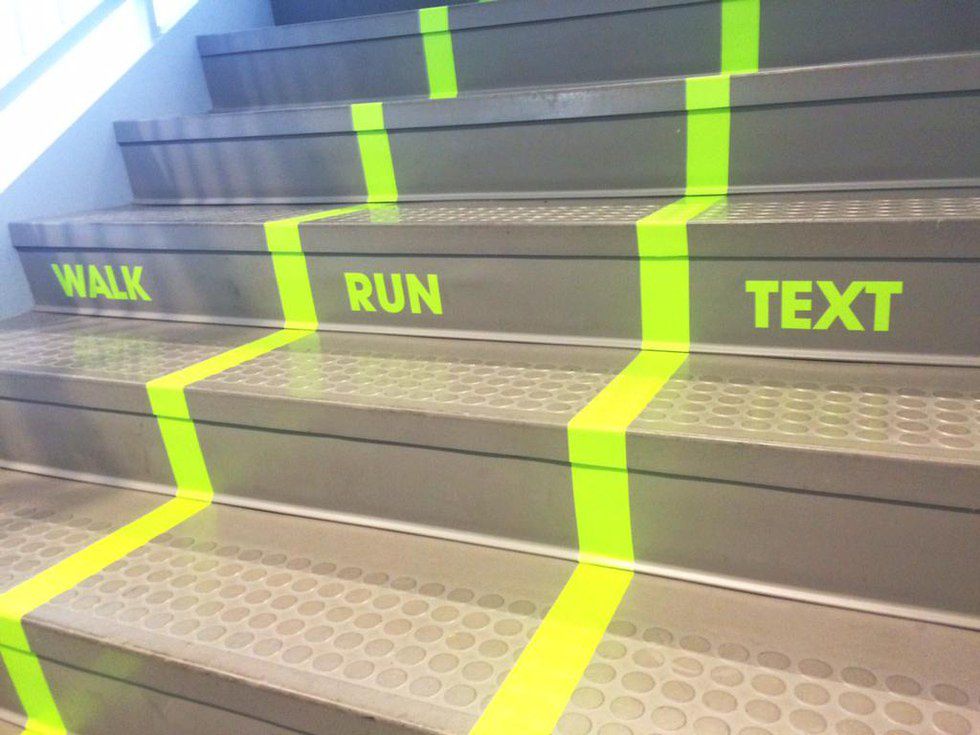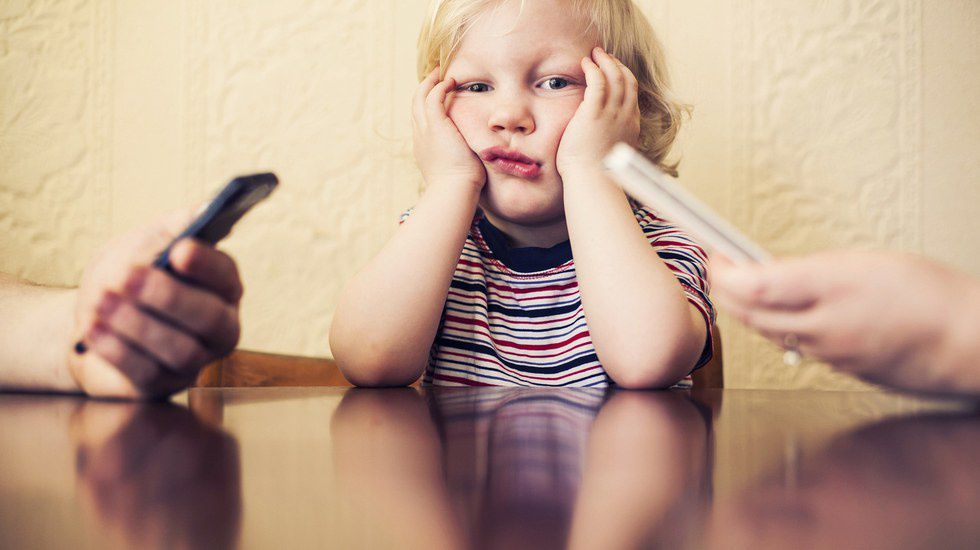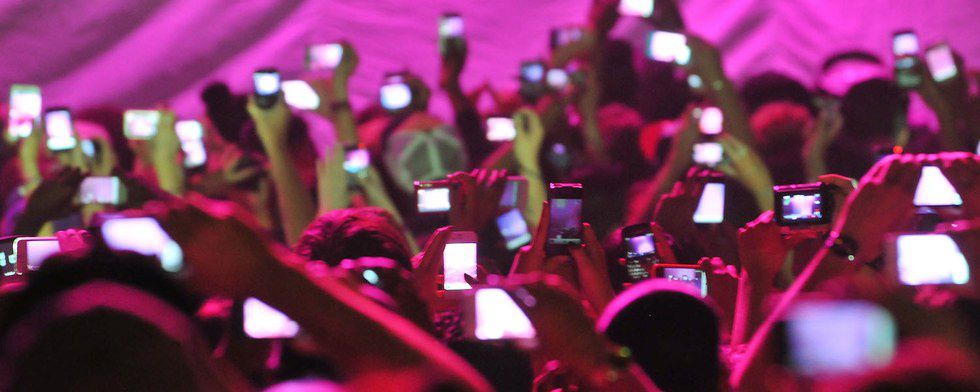I glance down and then up again. I glance down and then up again. I do it once more, but this time my professor is looking me dead in the eyes. He doesn’t look angry – he doesn’t look disappointed either, but he looks numb – as if he’s been trying to block me out. I feel bad so I resist the urge to look down again, but within 45 seconds I find myself scanning my thumbprint to look back at my phone. I end up doing this for the entirety of the 50 minute class.
I love the course. I love the topic and the professor is brilliant, but when I enter the room to listen to his lecture I just can’t shake the urge to text or check into Facebook, Snapchat, or other work all together. The funny thing is, I’m not the only one. After my mini fit of guilt, I scanned the room and, to my surprise, I found that, about 10 of the 13 students in class with me were staring at their cell phones as well. At times, not a single eyeball was fixed on the professor. Call me old-fashioned, but that has got to be disheartening. Can you imagine a world where you give speeches to roomfuls of people, but no one looks at you? From your mouth will come the tools needed for success in the world, but no one checks in with you? Of course, many factors played a role in my level of guilt. The professor is retiring this year, he is older – definitely not from the age of the cellphone, and he is such a kind man. I began scanning the room everyday and the number of people looking at their phones was always more than half.
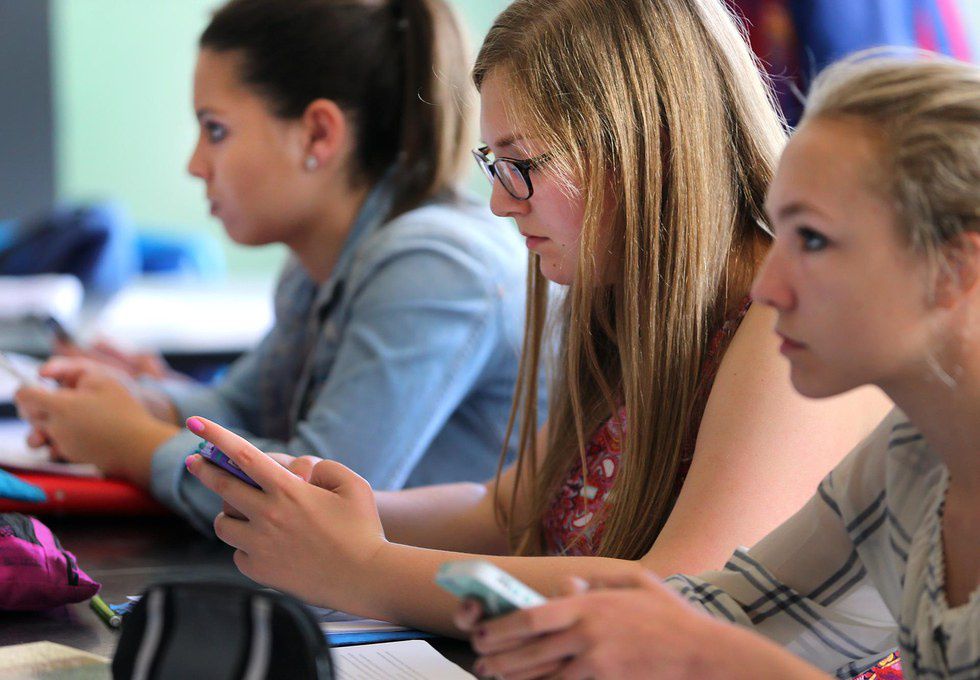
In a way, cellphones have allowed we mortal humans to assume super powers. We, in essence, have the power of the Internet at hand. We can now teleport, show people our thoughts, and read the minds of others all on social media. We are forever checking in, but power is addictive. If you’re anything like me, you probably wake up and check your phone – all form of social media. If you have a spouse, you may not even acknowledge them before picking up your plastic and metal device. You unplug it from the charger, get out of bed and take it to the bathroom. There you may spend five minutes too many just sitting there or standing there with you cellphone in hand, swiping up and down on your screen. Since the Internet is kind of endless, it takes a while. An eternity later, you exit the bathroom; get ready for your day, only to figure out that you’ve misplaced your phone. You search high and low. You pull your comforter off the bed, you get on all fours to look under the bed, and you re-trace your steps. You end up going places in the house that you know you didn’t visit. You check the couch cushions and the refrigerator (don’t act like you haven’t been there). “Have you seen my phone?” has been your nature call for five minutes, because you need to find it and you have somewhere to be in the next 30. You finally find it in the bathroom because you never brought it with you during you exit. You continue getting ready and you leave.
This may happen to me one a week, which isn’t that bad when I think about it, but the biggest lesson learned, in hindsight, is that the unexpected departure from my cellphone has the power to halt my plans in an instant. We all know the struggle – the cell phone anthem, “Can you call my phone?” We have been convinced that we need in it in more than we actually do. We have been convinced that it serves a purpose that nothing else, and certainly no human can provide.
You get to your friends house, whom you haven’t seen in a week and you try to catch up on recent events. You talk about work and classes. You talk about recent relationships. It’s getting pretty personal now. You notice that your friend has been glancing at her phone periodically. She’s paying attention, you swear by it, but not in totality. You continue with you story and she lets out little giggle. She ‘s clearly laughing at something or someone else, so you ask, “What’s so funny?” and just like that, your story is over. She didn’t mean to be rude, but she just wasn’t fully engaged in the conversation.
In addition to being utterly addicted to the mini computers, we become more distant from loved ones – creating less than intimate connections with friends and family.
At least for millennials, social gathers have become a place for us to show our friends all the cool things we’ve found on our life-force devices, rather than actually interacting with them. We’d rather watch videos on our phones than talk about something substantial. The better part of time with friends is now spent taking selfies for Snap or Insta – as if there is no better way to spend our time than posing for a tiny, silver dot on a screen. After that is done, we all sit in the same room and pretend that we are somewhere else by staring at our phones and watching other people do other things in other places.
More concerning, is the idea that cellphones help us escape. A perfect example would the bored employee. Many of us have been there. We get bored at work, our supervisor isn’t around so we pull out our phones and distract ourselves from ourselves. Before we know it we begin laughing, re-tweeting, and liking statuses, but I’d argue that therein lay the problem. If you can check out, so easily, with the cellphone that you’ve been using all day, is it possible to check out by accident? If at every major life-event you pull out your phone to document it in time, have you, essence, missed the actual event? I am in total support of cellphone usage, but I have started to wonder if, aside from the many benefits of cellphones, they have begun to do irreversible damage to our ability to make meaningful connections with others. When I watch people use cellphones at a gathering, in class, or during a presentation I get the impression that they’ve decided that being transported to another place would be better than what’s happening in the present.
As a performer I understand the frustration felt by Benedict Cumberbatch during his live performance of Hamlet at Barbican Centre. When an actual event takes place before our eyes and we decide to stare at it from a screen, the event itself has been missed. Events in time are more than the spectacles for all to see. It is the minute details in the exact moment that you check in with self. The smells, the way your clothes felt against your skin or the way the chair felt supporting your weight. It’s the sights you caught in your peripheral and the reaction of the person next to you. When you stare at your phone for its entirety you’ve more than likely put what’s happening in your phone over such an innate and deeply personal experience.
All the more concerning is the rise in phone related pedestrian accidents. With phones in hand, pedestrians 30 and under are more likely than ever to walk off of structures and or walk out into oncoming traffic. In fact, texting while walking is causing more accidents in American then texting while driving. The level of alarm should be enormously high when people are endlessly placing the urge to look at their phones over personal and public safety and survival – the most basic of instincts.


